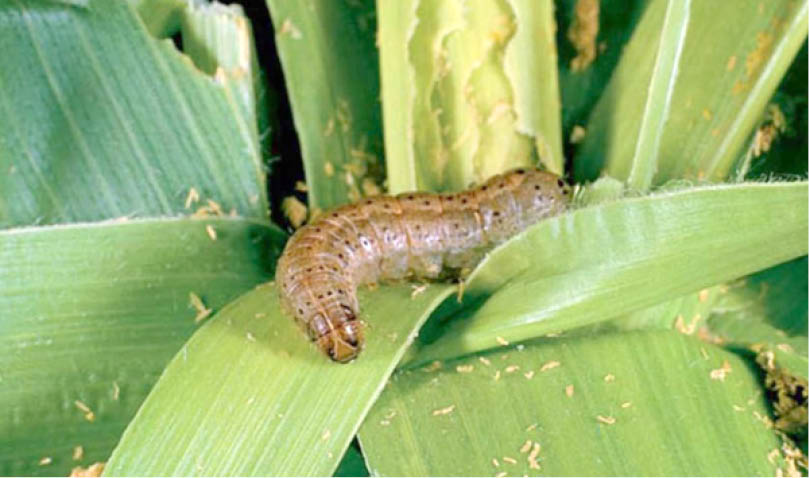Dr Folake Akinbode, a Plant Pathologist at the Institute of Agricultural Research and Training (IAR&T), Ibadan, has urged farmers to always plant resistant maize seeds as a preventive measure to tackle army worm infestation.
Akinbode gave the recommendation in an interview with the News Agency of Nigeria (NAN) in Ibadan.
She advised farmers to always plant and weed at the appropriate time, adding that delay in weeding could make pests to hibernate within alternative hosts.
Akinbode also urged farmers to harvest when cobs were mature to serve the desired purpose of cultivation.
She also suggested that bioinsecticides containing neem extracts (Azadirachtin) and Bacillus thuringinensis could also be used to tackle army worms.
“Fine sand is very abrasive, it can scar insect larvae.
” Rock salt, charcoal powder or ashes, lime and soaps also deter the larvae from feeding and kill them.
“Also maintenance of good farm hygiene is important to prevent proliferation of the pests and associated pathogens.
” Good cultural practices should be maintained while prompt removal of infested plants is important.
“There are also biological organism control measures such as naturally occurring or introduced predators; in all, the use of integrated pest management approach is the best,” she said.
According to her, research works are still going on to find the pathogens that can be used to control pests.
She said that the ravaging effects of pests had made it imperative for all hands to be on deck in Nigeria given the fact that it attacks maize, a major staple crop.
“Presently no definite control measure is known to combat it, indicating that the pest cannot be eradicated easily and quickly.
” There is need for concerted efforts to combat this pest menace,” she said. (NAN)

 Join Daily Trust WhatsApp Community For Quick Access To News and Happenings Around You.
Join Daily Trust WhatsApp Community For Quick Access To News and Happenings Around You.


